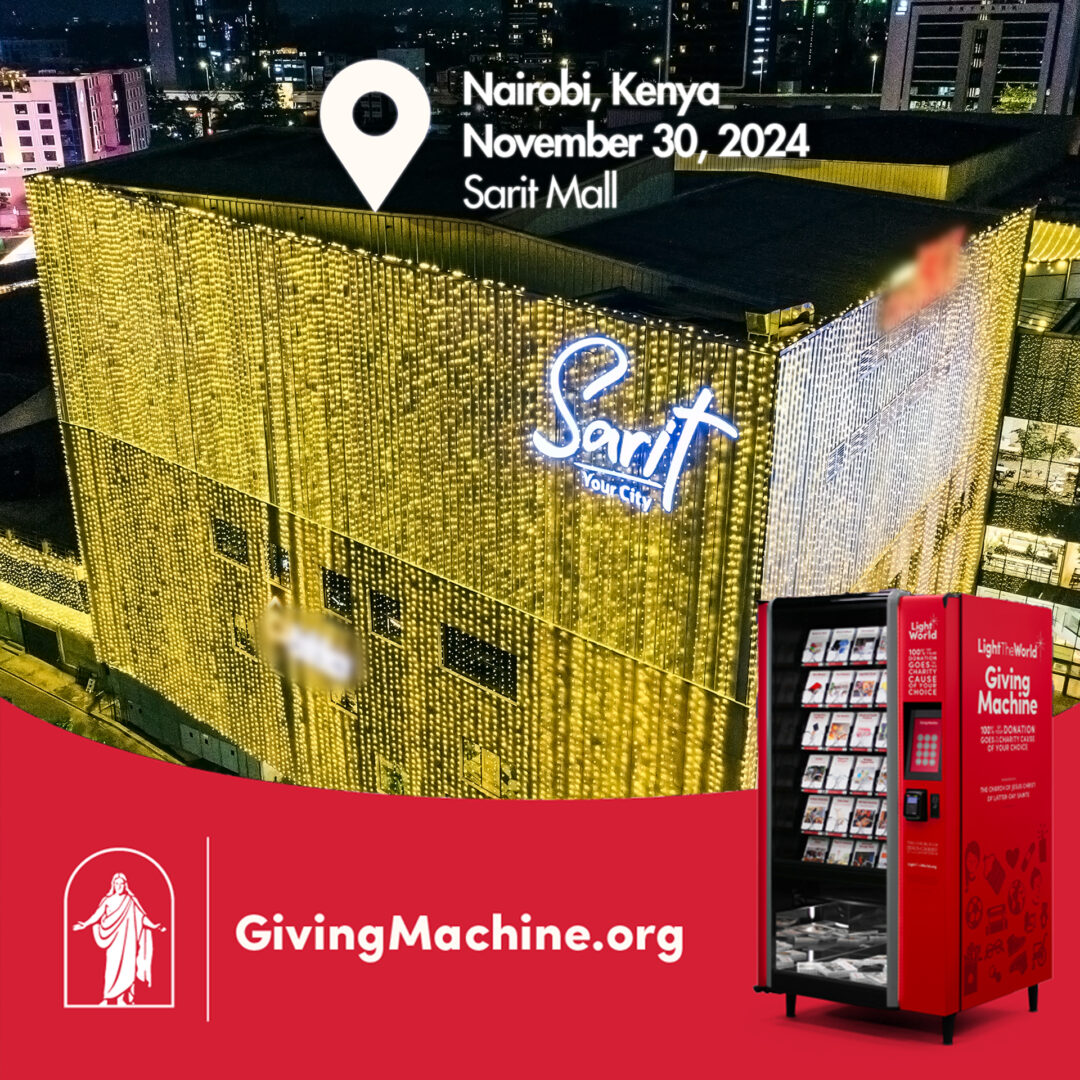
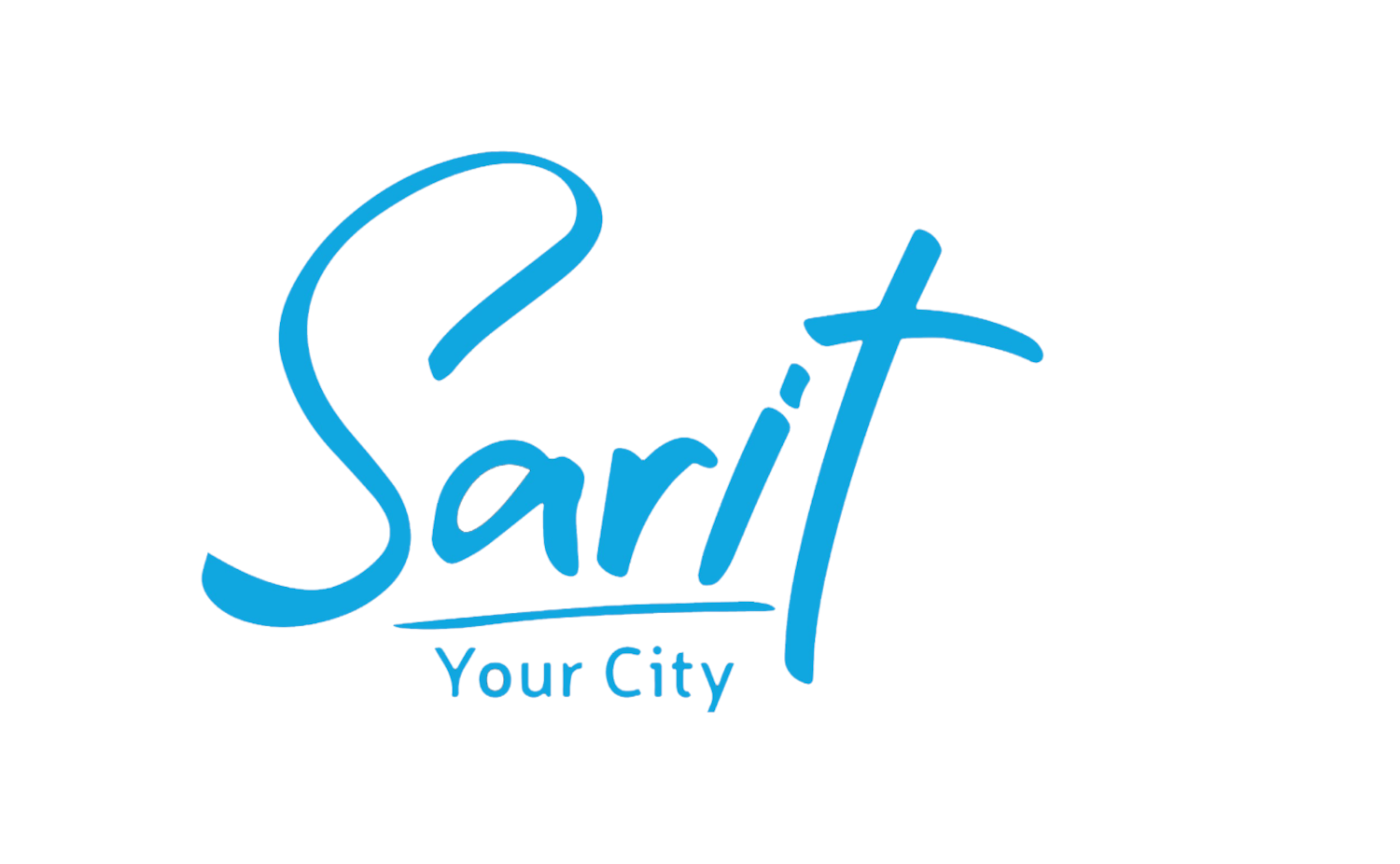


Warning, this event was expired!
Giving Machines, sponsored by the Church of Jesus Christ of Latter-day Saints, provide an instant act of service for people looking to help those in their community and around the world. Visitors can make donations by purchasing items ranging in price from 400 KES to 10,000 KES and include staples such as clothing and hygiene items, meals and school supplies to livestock and life-saving medicine.
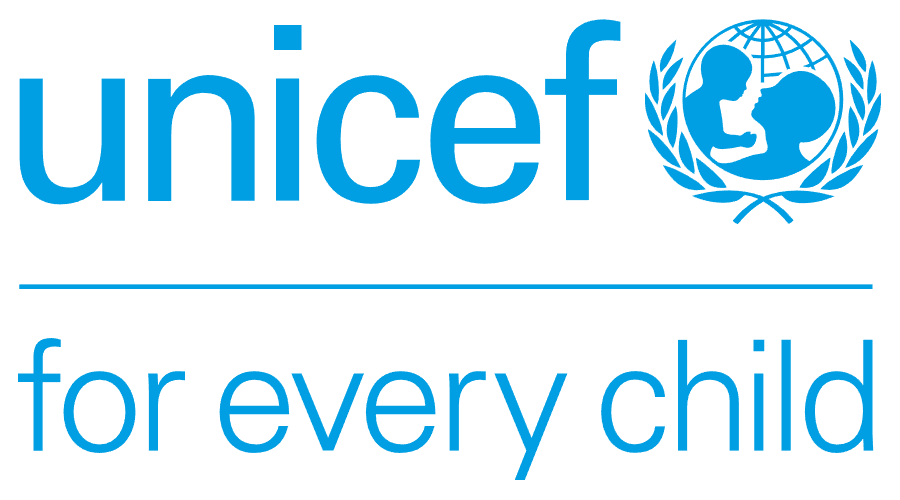
UNICEF is the United Nations Children’s Fund. Our work is funded entirely through voluntary contributions, and we share openly where our resources come from, and where they go. We work to protect the rights of every child, especially the most disadvantaged and the hardest to reach. We do whatever it takes to help children survive, thrive and fulfil their potential. We provide and advocate for education, health and nutrition services. We protect children from violence and abuse. We bring clean water and sanitation to those in need and keep them safe from disease. UNICEF has been working in Kenya for 53 years since 1971, with a workforce of around 200 people in 4 offices across Kenya. We are impartial and non-political.
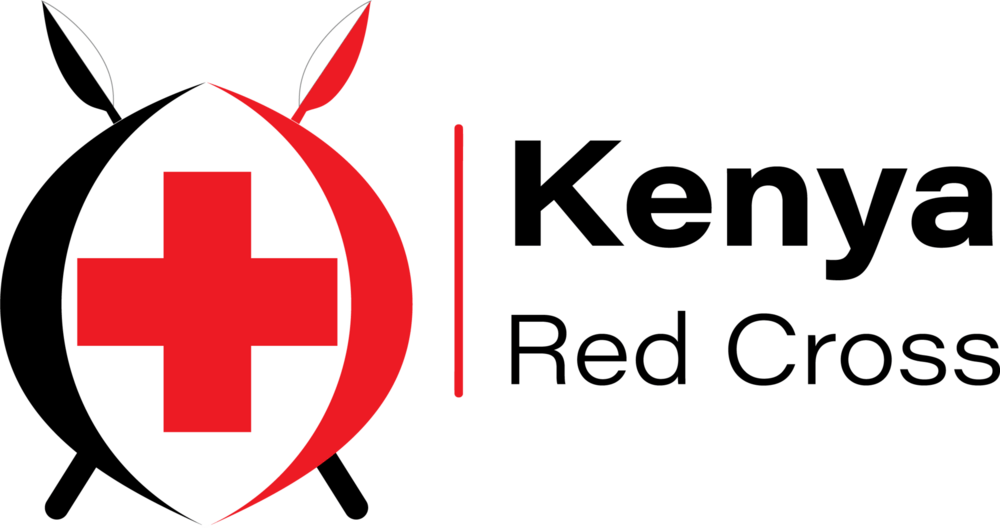
The Kenya Red Cross Society (KRCS) is a volunteer-based humanitarian organization, auxiliary to the National and County Governments, established through an Act of Parliament CAP 256 of the laws of Kenya) in 1965 with a mission to alleviate human suffering, protect life and health and uphold human dignity during disasters and other crises. The society draws its strength from a strong network of members and volunteers from communities across the country with diverse skills and professions, and it is keen to implement different resilience-promoting interventions in the communities targeting the most vulnerable populations. All the programs are multi-sectoral, reflecting holistic approaches that consider the considerable complexity of communities.

Caritas Kenya is the development and humanitarian arm of the Kenya Conference of Catholic Bishops (KCCB), with a presence in 26 Dioceses across all 47 Counties in Kenya. Caritas Kenya tackles the root causes of poverty by focusing on the poor and the most vulnerable population in urban, peri-urban, rural, and marginalized areas.
Our work includes the provision of humanitarian assistance to aid quick recovery of people affected by natural and man-made disasters, strengthening livelihoods resilience through integral ecology to protect vulnerable communities from shocks, provision of clean and portable water in water-scarce regions, empowerment of women, men, urban refugees, and the youth through savings programmes and vocational skills training, improvement of schools’ infrastructure in Arid and Semi-Arid Lands, and advocacy to influence public policy on food security, climate change, social protection and poverty.
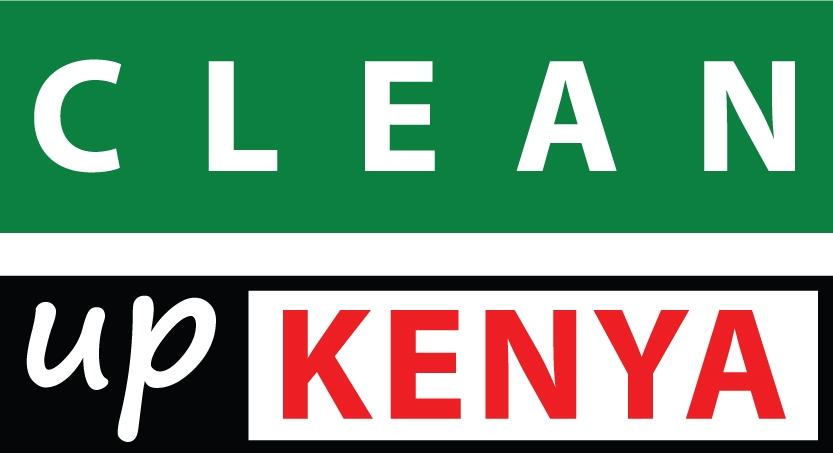
Clean Up Kenya’s journey began in 2015, with a mission to champion sustainable public sanitation. We initially focused on tackling the immediate concerns of littering and illegal dumping, through advocacy and later started conducting community cleanups.
This gradually evolved into the promotion of discourses on broader challenges facing public sanitation in the country. These include the impact of single-use plastics on the environment, issues of extended producer responsibility, the role of communities in solutions building, regulatory reform, environmental crimes, and sanitation justice for urban communities, among other important topics.

Church World Service is a faith-based organization transforming communities around the globe through just and sustainable responses to hunger, poverty, displacement and disaster. CWS was born in 1946 in the aftermath of World War II. Now, more than 75 years later, CWS works across Asia, Africa, Europe and the Middle East, Latin America and the Caribbean and North America to help build a world where everyone has food, a voice and a safe place to call home.
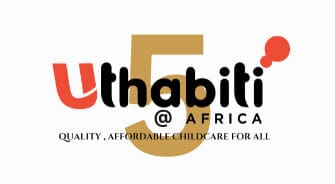
Uthabiti Africa a Nairobi-based African non-profit that exists to ensure that every child in Africa (with Kenya as the launchpad) has a better start in life irrespective of the circumstances that the child is.
Our collaborative approach (bringing together actors in childcare-all the stakeholders present) consistently prioritizes childcare workers while placing children at the centre and Governments in the lead.
We are building the Network of Women in Childcare in Kenya, which currently has over 7,000 members (in urban informal settlements of Nairobi and Kisumu Counties) taking care of at least 115,000 children (with at least 2,000 of the children living with disabilities).